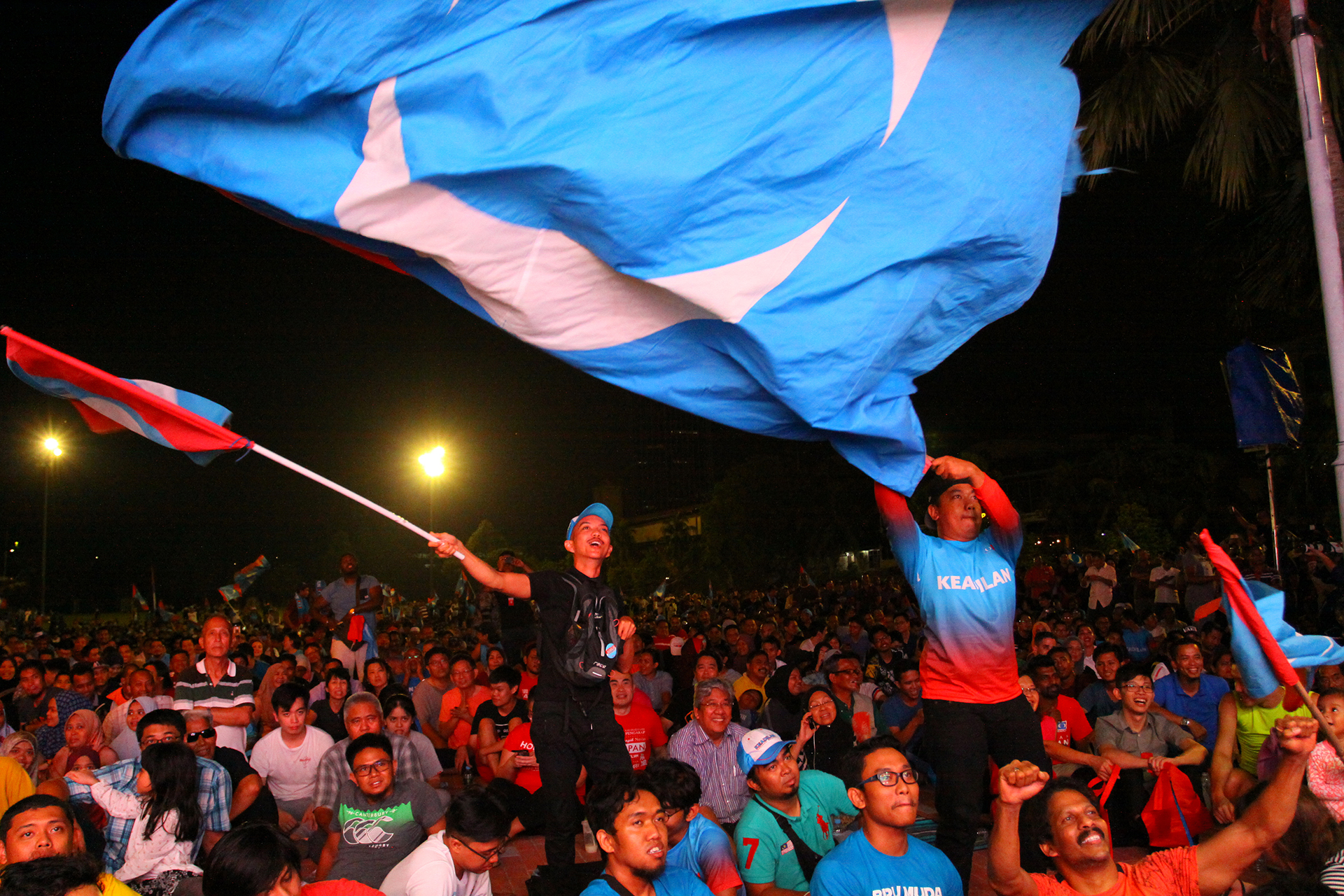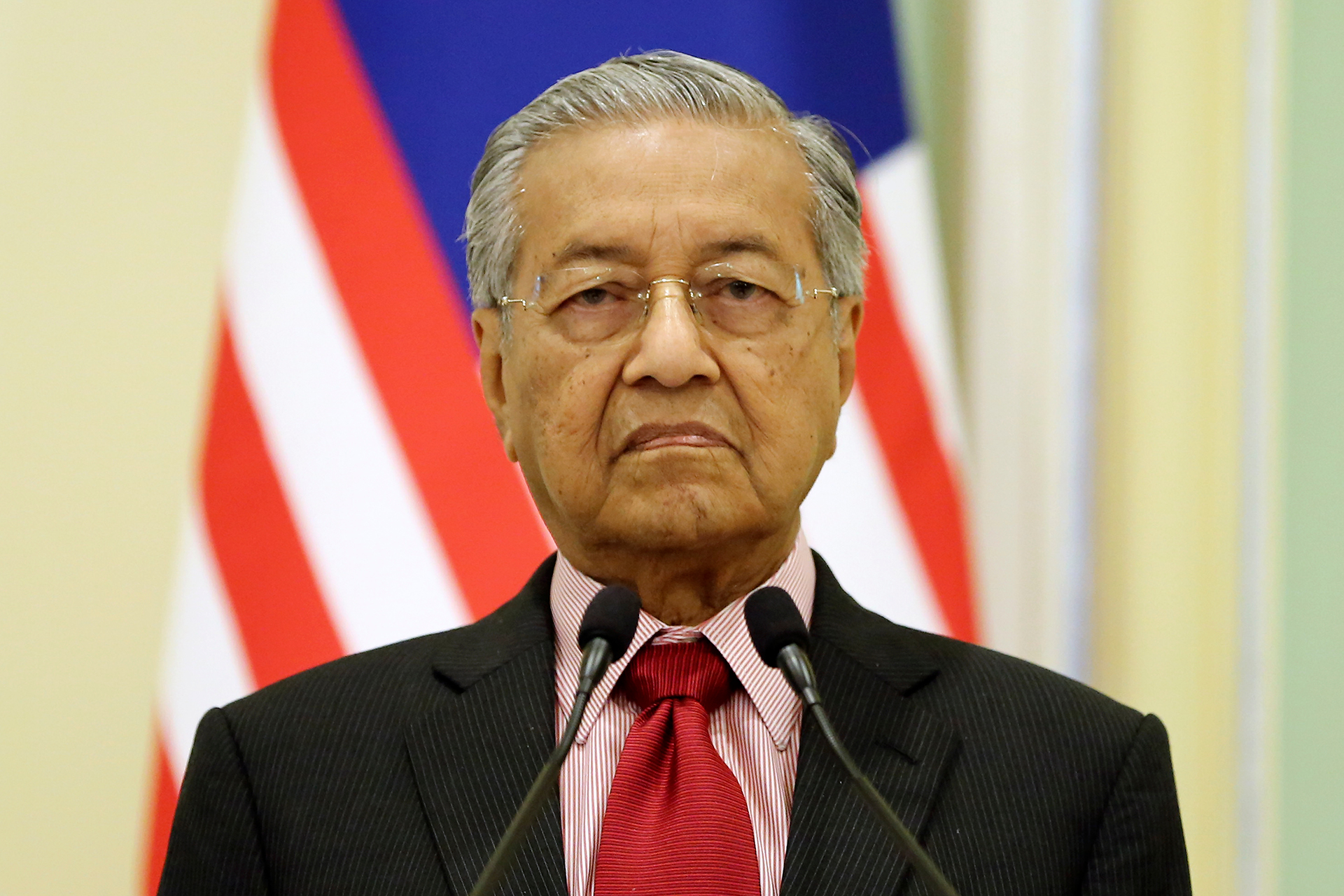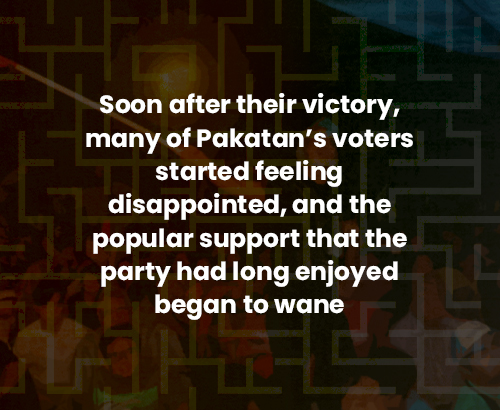The era of Old Malaysia was dark.
Malaysia’s history has always been punctuated by systemic oppression and democratic failures. In the mid-60s it was the Emergency Ordinance, which dramatically bloated the powers of the government in the name of national security. In the 70’s, it was a hung parliament. In the late ‘80s it was the Internal Security Act, leading to the detention without trial of several opposition leaders.
In the ‘90s, even as historic Reformasi Movement drew thousands of people to the streets to protest against government abuses, crackdowns on activists and democracy defenders were in full swing. Political unrest seemed to be the norm in the country, continuing through the following decade.
All of this reached a head in 2015, when then-Prime Minister Najib Razak found himself at the center of a nearly 3-billion RM (around US$7.2 million) scandal. Najib, with the help of a shady businessman, was accused of funneling money from the 1Malaysia Development Berhad, also known as 1MDB, a state-owned strategic development enterprise, right into his personal bank accounts.
At the time, the 1MDB controversy made terrible waves globally, capturing headlines and drawing the ire of companies and governments all over the world. Jeff Sessions, then-attorney-general of the United States, said in 2017 that the scandal was “kleptocracy at its worst.”
But no matter how stern the international reproach was, the situation was even more heated at home and people were enraged. In the years after the 1MDB scandal unfolded, hundreds of thousands of Malaysians stormed the streets to protests against Najib. Lawsuits also flooded in, both from domestic and overseas plaintiffs, further backing the embattled prime minister into a corner.
It was amid this climate – of rage, of global embarrassment, of bare-faced government corruption – that New Malaysia was born.
On 2018, still galvanized by the flames of their anger from the 1MDB scandal, people trooped to the polls and let their ballots express their desire for change. They came out the other side euphoric.
After decades in power, the Barisan Nasional – National Front – to which Najib belonged, had finally fallen. Rising up to take its stead was Pakatan Harapan (PH) — a newer, younger party known for their progressive stands and opposition to the archaic policies of Old Malaysia. Decades of struggle for democracy, human rights, equality, and progress had finally paid off.

May 2018. Supporters of Pakatan Harapan – or Pact of Hope – celebrate their electoral victory. Some ten years since their debut polls, and after several losses and internal disputes, Pakatan was finally able to unseat the Barisan Nasional party, a political titan that has hoarded power for decades.
Pact of Hope
Loosely translated as Pact of Hope, the PH party first rose to prominence in 2008, when it swept elections in four key states in Peninsular Malaysia – Selangor, Penang, Kedah, and Perak – all the while keeping a vice grip on its stronghold, Kelantan. At the time, the party still flew the banner of Pakatan Rakyat, or Pact of the People. In the same year, Pakatan (PH) also proved to be a formidable challenge to Barisan in the House of Representatives, finally breaking years of their supermajority.
These victories helped Pakatan show the people of Malaysia what they could do and build a reputation for the party. Pakatan leaders were never known to shy away from voicing their disapproval of the old guard’s policies, and they always seemed to have a better alternative to propose, be it in the realm of education, economy, housing, social welfare, transportation, and even race and religion.
Pakatan always put up such an impassioned opposition to the antiquated ways of the Old Malaysia that several critics and cynics thought they were just a bunch of loud politicians who would forever sit on the opposition benches, too enamored by unrealistic narratives, and not serious enough about taking over the government.
To many, it seemed like it was almost too easy for Pakatan to talk about free education, cheaper houses and cars, reduced taxation, toll-free highways, and gas price rollbacks knowing full well they weren’t going to be the ones actually implementing it.
In 2009, to wrestle back some of the power it lost, Barisan Nasional bought out several Pakatan members and incited a series of political coups in Perak, taking back control of the state. In the aftermath, not only did Pakatan lose a territory, but its subgroup dominated by non-Malays, the Democratic Action Party, became the target of the public’s fury.
Undeterred by the underhanded political maneuvers of their opponents and the incessant doubts of their critics, the Pact of Hope again rallied during the 2013 General Elections, led by former Deputy Prime Minister Anwar Ibrahim.
With a deep political bench, a strong reform agenda, and the banners of economic success in their strongholds, Pakatan Harapan swept the popular votes once more, making quick work of Barisan Nasional, led by Najib.
But when the dust had settled, Pakatan still emerged the loser. Despite earning less than 48 percent of votes, Barisan nevertheless secured 133 parliamentary seats and remained the dominant force in the government.
The 2013 elections were an eye-opener for many people, as they unveiled for the first time the flaws of electoral politics in Malaysia, propped up by a first-past-the-post electoral system, designed to keep Barisan Nasional in power.
For Pakatan, the loss would prove to be a crucial inflection point in how the party played the political game. Instead of looking for ways to defeat the system and fight for fairer elections, the Pact, for once, fully embraced realpolitik, overhauling itself before reentering the fray of the 2018 polls.
Shattered to pieces
Still reeling from their unexpected loss in 2013, the Pakatan Harapan party continued to sustain major damage. Their leader, Anwar Ibrahim, was imprisoned on sodomy charges, leaving the party without a clear direction.
Pakatan desperately needed a strong Malay-based party as a strategic ally, and more importantly, a convincing leadership figure to take over the vacant seat left by Anwar and to lead the charge in the 2018 elections. Amid uncertainty and infighting, they found their answer in the unlikeliest of people, former Prime Minister Tun Dr Mahathir.
For decades, Tun Mahathir had been known as the biggest enemy of the reform agenda—the same agenda that Pakatan was pushing for. So, when party leaders decided to bring him on, many members felt wronged, particularly veteran politicians and activists who suffered through imprisonment, mistreatment, and abuse during his tenure as Prime Minister.

March 2019. Then-Prime Minister Tun Dr Mahathir speaks at a press conference. Mahathir has, for years, been a strong opposition to Pakatan Harapan. But by the 2018 elections, the two had chosen to join hands – irking long-time supporters of both parties – ultimately wrestling the victory away from Barisan Nasional.
Eventually, after series of negotiations, dialogues, closed-door meetings between leaders, and finally an open joint statement with the party’s top brass, Dr Mahathir was accepted as the leader of Pakatan, though with a lot of reservations.
He had to prove himself and convince the Pakatan members that he was now a reformed politician, and convince his old supporters that joining forces with the former enemy was the right choice. He had to promise that the reform agenda, long bannered by Pakatan, would be a priority of his leadership. And most importantly, he had to promise he would ensure victory for Pakatan in 2018.
And deliver he did. Pakatan finally managed to defeat Barisan in the 2018 elections, and their new government became the symbol of new hope for most Malaysians. Democracy had finally prevailed, and everything seemed possible. Malaysia emerged as the new power house for democracy in the Southeast Asian region.
But their time in the sun would not last long. Soon after their victory, many of Pakatan’s voters started feeling disappointed, and the popular support that the party had long enjoyed began to wane, hounded as it was by many broken promises, an unclear direction in governance, and mounting allegations of corruption. This was not the same government that the people elected into power during the historic 2018 elections.
 Pakatan promised a more democratic and people-centric government. Their manifesto was clear: abolish archaic, draconian acts long deemed undemocratic and repressive, and implement better taxation structures to ease the economic burden of the people. They campaigned for wealth restructuring, job creation, and higher minimum wages.
Pakatan promised a more democratic and people-centric government. Their manifesto was clear: abolish archaic, draconian acts long deemed undemocratic and repressive, and implement better taxation structures to ease the economic burden of the people. They campaigned for wealth restructuring, job creation, and higher minimum wages.
In power, Pakatan was able to deliver some, but desperately failed at most. While they successfully abolished the Goods and Services Tax, nothing substantial happened to the students’ loan. Unemployment rates remained high and the minimum wage remained low.
To make things worse, laws that empower and abet government oppression are still firmly in place, even after a year of Pakatan’s rule. Even the highly criticized Sedition Act of 1948, which they promised to repeal, had not only been untouched but was even used against their critics. It’s almost too easy to point out the wrongdoings of Pakatan during their time in power.
Barisan wasted no time in exploiting the weaknesses of Pakatan. Najib Razak launched his “Bossku” campaign, roughly translated as My Boss, earning the attention of many younger people. In a surprisingly short time, Najib, who was on the hook for a scam that earned him billions of RM, had ironically risen as an icon for many working-class voters.
The Pact of Hope was supposed to usher in a new dawn for the country, marking the start of its path to prosperity. But the promise that New Malaysia held was shattered to pieces in just 22 months. What went wrong? ●
Adam Adli is a Malaysia-based (former) political agitator. He is currently the chairperson of the People’s Democratic League, a youth-centric political organization with no physical office.



















